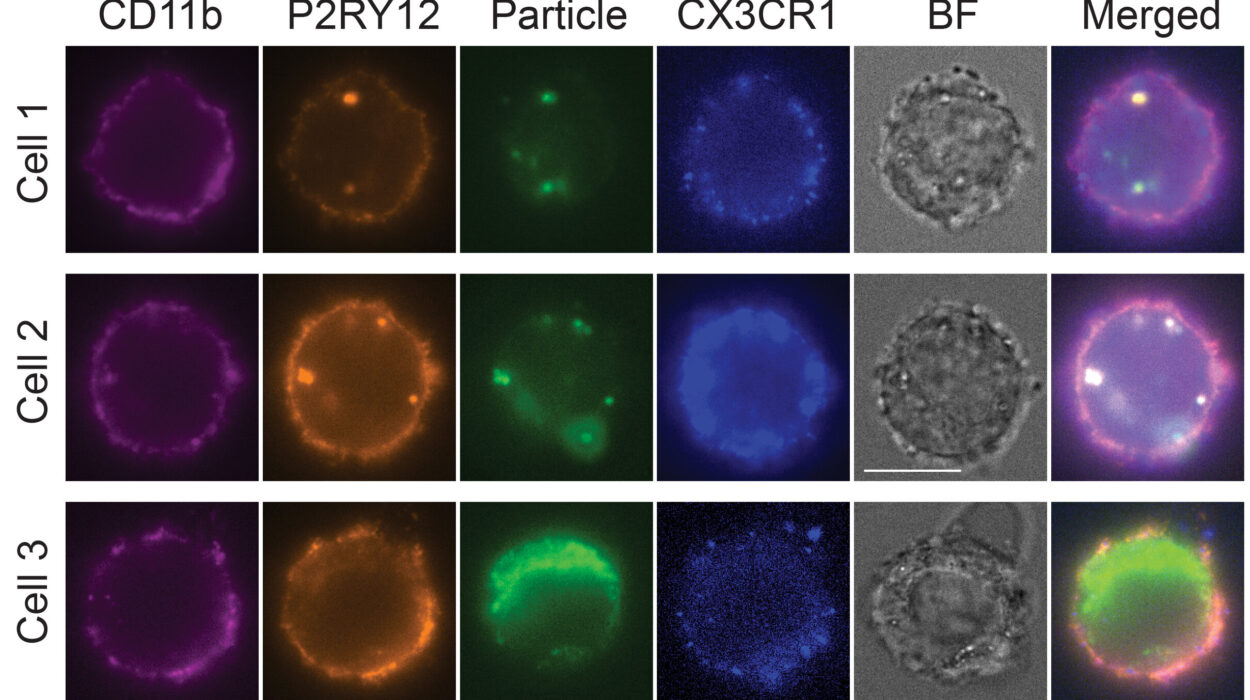For decades, zeaxanthin has been known as a quiet guardian of vision—a carotenoid that shields our eyes from harmful light and slows the progression of age-related macular degeneration. Found naturally in leafy greens like spinach and kale, and in the golden hues of corn and orange peppers, zeaxanthin has always been celebrated as an essential nutrient for healthy sight.
But a groundbreaking study from the University of Chicago suggests this humble plant compound may have a far more profound impact—one that reaches beyond vision into the very heart of our immune defenses. Published in Cell Reports Medicine, the research reveals that zeaxanthin could act as an immune-boosting ally, helping the body fight cancer more effectively by supercharging its frontline soldiers: T cells.
“We were surprised to find that zeaxanthin, already known for its role in eye health, has a completely new function in boosting anti-tumor immunity,” said Jing Chen, Ph.D., the senior author of the study. “Our study shows that a simple dietary nutrient could complement and strengthen advanced cancer treatments like immunotherapy.”
How Zeaxanthin Powers the Immune System
The immune system’s battle against cancer is fought primarily by specialized cells called CD8+ T cells. These cells act like assassins, seeking out and destroying tumor cells. They do this by using a molecular tool known as the T-cell receptor (TCR), which allows them to recognize abnormal cells and launch an attack.
Chen’s team discovered that zeaxanthin enhances this process in an unexpected way. The compound stabilizes the TCR complex on CD8+ T cells when they interact with cancer cells. This stabilization amplifies the signals inside the T cells, leading to greater activation, higher production of cytokines (the immune system’s chemical messengers), and a stronger tumor-killing response.
In other words, zeaxanthin seems to sharpen the immune system’s weaponry, making it more precise and powerful in targeting cancer cells.
Enhancing the Promise of Immunotherapy
In recent years, immunotherapy has revolutionized cancer treatment by harnessing the body’s immune system to fight tumors. Drugs called immune checkpoint inhibitors have shown remarkable results, but their effectiveness varies among patients, and many still do not respond as hoped.
Here is where zeaxanthin could make a difference. In mouse models, dietary supplementation with the nutrient not only slowed tumor growth but also made checkpoint inhibitors more effective. When zeaxanthin was combined with immunotherapy, tumors shrank more than with immunotherapy alone.
The research extended beyond animal studies. Human T cells, engineered to target specific tumor antigens, became stronger killers of melanoma, multiple myeloma, and glioblastoma cells after being treated with zeaxanthin in laboratory experiments. The implications are clear: this everyday nutrient could amplify the effectiveness of some of the most advanced therapies available today.
“Our data show that zeaxanthin improves both natural and engineered T-cell responses, which suggests high translational potential for patients undergoing immunotherapies,” Chen explained.
Safe, Accessible, and Already on Store Shelves
One of the most promising aspects of zeaxanthin is its accessibility. Unlike experimental drugs that require years of safety testing, zeaxanthin is already widely available as an over-the-counter supplement. Millions of people take it daily for eye health, and its safety profile is well established.
This makes it an attractive candidate for rapid translation into clinical trials. Moreover, zeaxanthin is naturally present in common foods, from kale and spinach to corn and orange peppers. The notion that something so familiar, inexpensive, and well-tolerated might strengthen the body’s fight against cancer is both exciting and hopeful.
The study also builds on Chen’s earlier work, which uncovered another nutrient—trans-vaccenic acid (TVA), derived from dairy and meat—that enhances T-cell activity through a different mechanism. Together, these discoveries suggest that the immune system can be influenced by a broad spectrum of nutrients from both plants and animals, offering complementary benefits.
A New Frontier in Nutritional Immunology
While the findings are inspiring, Chen and his colleagues emphasize caution. Much of the current evidence comes from laboratory experiments and animal models. Clinical trials will be essential to determine whether zeaxanthin supplementation can truly improve outcomes for cancer patients.
Still, the study signals the birth of a new scientific field: nutritional immunology. This emerging area seeks to understand how specific nutrients interact with the immune system at the molecular level, shaping its ability to defend against disease. Zeaxanthin, with its dual role in protecting vision and empowering immune cells, may be one of the first clear examples of this concept in action.
“Our findings open a new field of nutritional immunology that looks at how specific dietary components interact with the immune system at the molecular level,” Chen said. “With more research, we may discover natural compounds that make today’s cancer therapies more effective and accessible.”
The Bigger Picture: Food as Medicine
Zeaxanthin’s story resonates with a timeless truth: what we eat matters deeply, not only for our daily health but for our body’s ability to withstand life’s greatest challenges. The discovery that a pigment from leafy greens and bright vegetables can influence the outcome of something as devastating as cancer reminds us of the intimate relationship between nutrition and biology.
This doesn’t mean that kale or corn alone can cure cancer. But it does mean that the foods we consume may hold untapped potential to complement modern medicine. In the future, cancer treatments might not rely solely on powerful drugs or cutting-edge genetic engineering. They may also be strengthened by the nutrients quietly working in the meals we eat every day.
Looking Ahead with Hope
The story of zeaxanthin is still unfolding, but it already carries a sense of wonder. A molecule once celebrated only for eye health may turn out to be a vital ally in humanity’s fight against one of its deadliest diseases.
If clinical trials confirm these early findings, zeaxanthin could represent a new kind of therapy: simple, affordable, and globally accessible. It could give doctors another tool to enhance the promise of immunotherapy, and patients another reason to hope.
And perhaps most importantly, it shows us that the answers to some of medicine’s hardest questions may not always lie in distant laboratories or complex technologies. Sometimes, they may be hidden in the vibrant colors of a vegetable garden, waiting to be discovered.
More information: Freya Q. Zhang et al, Zeaxanthin augments CD8+ effector T cell function and immunotherapy efficacy, Cell Reports Medicine (2025). DOI: 10.1016/j.xcrm.2025.102324






